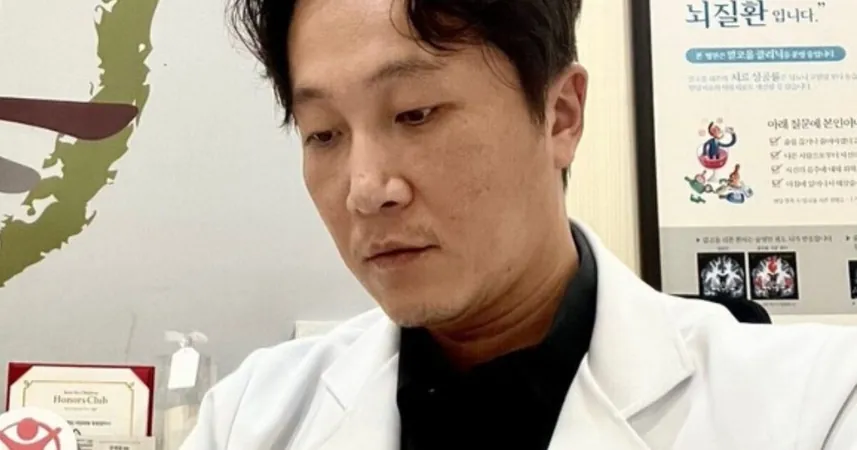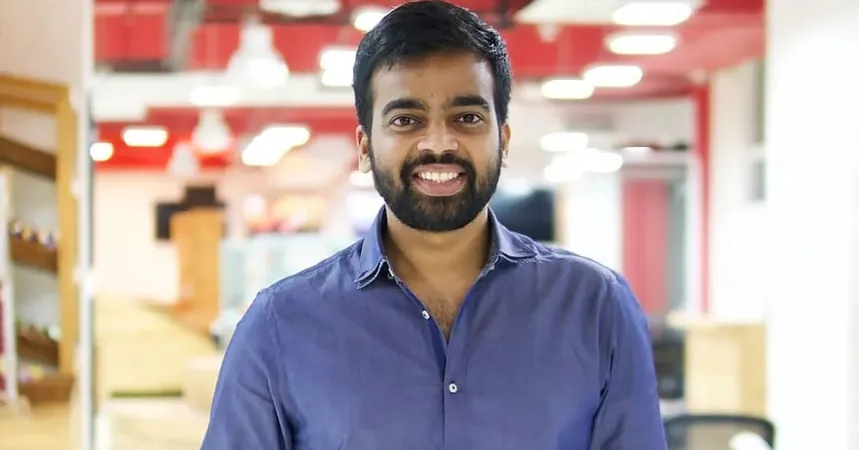
EXID Hani’s Fiance and Psychiatrist Breaks Silence on Patient’s Death Amid Scandal
2024-09-21
In a shocking turn of events, Yang Jae Woong, the psychiatrist fiancé of K-Pop star EXID's Hani, has spoken out regarding the recent scandal surrounding the death of a patient at W Jin Hospital, where he serves as director. The case has captured widespread media attention after the mother of the deceased shared her heartbreaking story.
The patient, who tragically lost their life after being hospitalized for over two weeks due to an addiction to narcotic diet pills, has prompted investigations into Yang’s medical practices and treatment protocols. Following the incident, both Hani and Yang have chosen to delay their wedding plans amid the public outcry.
In an exclusive interview with Hankyoreh, Yang expressed deep regret over the incident, emphasizing that while he does feel a personal responsibility as hospital director, he does not believe the medical staff acted with intentional neglect, a narrative cultivated by some media outlets. “This is an unfortunate incident that we are reflecting on,” he stated, insisting that the measures taken with the patient were necessary for their well-being.
Yang elaborated on the care provided, noting that he had not personally seen the late patient as he only handles outpatient cases. The standard practice at W Jin Hospital involves a team of psychiatrists managing inpatient care, but the protocols regarding isolation and restraint have come under scrutiny, particularly after the patient displayed what attending staff described as psychotic symptoms.
As the detailed investigation unfolds, it’s revealed that the late patient was subjected to various medications and restraints, raising further questions about the appropriateness of the care provided. “We follow strict guidelines from the Ministry of Health and Welfare for such interventions,” Yang explained, highlighting that these measures are typically employed only in cases posing risks of self-harm or harm to others.
In particular, the significant doses of medication administered prior to the patient’s decline have raised eyebrows, with reports claiming the dosages were alarmingly high. Yang defended the hospital’s practices, stating that the treatments adhered to normative standards.
Furthermore, Yang has acknowledged the inadequate quality of CPR performed on the patient, vowing to enhance training for staff in emergency response techniques. He faced criticism for not personally reaching out to the bereaved family, although he claims that hospital staff expressed their condolences shortly after the incident.
The fallout from this tragic case has placed additional stress on Australia’s mental health facilities, which have seen a significant decline in admissions since the onset of the COVID-19 pandemic. Yang fears that this incident might discourage healthcare professionals from accepting patients with addiction issues, further complicating efforts to provide necessary mental health care.
As Yang continues to navigate this complex situation, he hopes to ultimately extend personal apologies to the grieving family, expressing his sorrow over the unfortunate loss. The investigation into the events surrounding the patient’s death is ongoing, and the ramifications for W Jin Hospital remain to be seen.
This tragedy not only shakes the foundations of the psychiatric community but also raises important questions about accountability and care within mental health facilities. How will this incident influence public perception of mental health treatment? As more details emerge, it’s clear that this case will have lasting impacts on both the involved individuals and the broader mental health landscape in South Korea.
Stay tuned for further developments as this story unfolds.






 Brasil (PT)
Brasil (PT)
 Canada (EN)
Canada (EN)
 Chile (ES)
Chile (ES)
 España (ES)
España (ES)
 France (FR)
France (FR)
 Hong Kong (EN)
Hong Kong (EN)
 Italia (IT)
Italia (IT)
 日本 (JA)
日本 (JA)
 Magyarország (HU)
Magyarország (HU)
 Norge (NO)
Norge (NO)
 Polska (PL)
Polska (PL)
 Schweiz (DE)
Schweiz (DE)
 Singapore (EN)
Singapore (EN)
 Sverige (SV)
Sverige (SV)
 Suomi (FI)
Suomi (FI)
 Türkiye (TR)
Türkiye (TR)